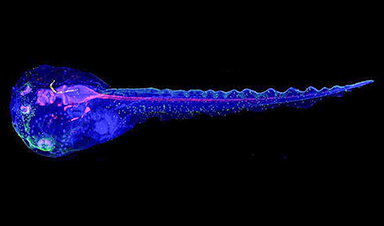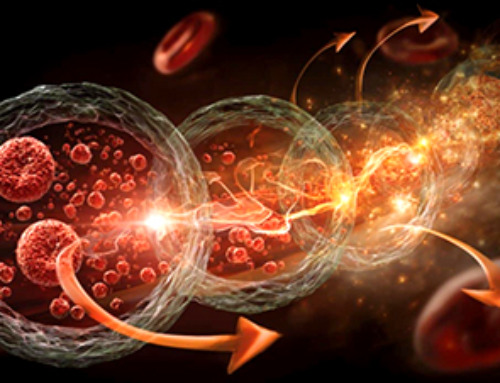- Sunday, October 3, set records for the most COVID-19 deaths in Russia on a single day.
- Only 29% of people in Russia are vaccinated, despite the country being the first to approve a vaccine.
- The vast majority of hospitalized COVID-19 patients in Russia are unvaccinated.
On Sunday, October 3, Russia reported its highest number of COVID-19 deaths per day since the start of the pandemic for the fifth time in a week. That day, 890 people died of the disease. The number of new infections was 25,769, the second-highest of the year.
Russia has the highest COVID-19 death toll of any European nation, with 218,345 fatalities. The country has reported 7,832,964 cases of the disease since the start of the pandemic.
According to The Guardian, publicly available data suggest that 600,000 “excess deaths” have occurred in Russia from the start of the pandemic to July 2021. This statistic suggests that the official death toll may significantly undercount the actual figure.
Rising rates
Prime Minister Mikhail Mishustin says that the government is “seriously concerned” about the rise in COVID-19 infections and fatalities.
Mishustin points out: “Morbidity is increasing in most Russian regions. There are twice as many patients in hospitals as there were at the same time last year.” Mishustin himself was diagnosed with COVID-19 in April.
As SARS-CoV-2’s Delta variant moves through Russia’s population, Mishustin attributes the surge to low vaccination rates among the country’s citizens, saying that “the vaccination level is insufficient to stop the spread of infection.”
Of the people currently hospitalized in Russia with COVID-19, the vast majority are unvaccinated.
This is in spite of the fact that Russia was the first nation to approve a vaccine for COVID-19, its own Sputnik V vaccine. Today, three different vaccines are available throughout the country.
Low vaccination factors
President Vladimir Putin has consistently urged the Russian people to get vaccinated, saying, “[COVID-19 is] dangerous, dangerous to your life. The vaccine is not dangerous.”
Nonetheless, just 29% of people in Russia are fully vaccinated. Almost 33% have received a single dose.
Last summer, an independent survey explored Russians’ resistance to vaccination. In that study, 33% of people surveyed said they were fearful of side effects, 20% said they were waiting for the completion of clinical trials, and 16% saw no reason to get vaccinated. Russia finished phase 3 clinical trials of the Sputnik V vaccine on September 30.
Of those surveyed, 57% said they were not afraid of getting COVID-19. A similar number said they were opposed to mandatory vaccinations.
Dr. Anna Gotlib, a Russian-born philosopher and bioethicist, told Medical News Today that another factor is a longstanding distrust of the federal government in Russia that can leave people “sort of stuck.” Dr. Gotlib said:
“They have a hard time trusting their own vaccine, and yet they don’t trust the Western one. In the end, they just opt out of the whole thing.”
According to Dr. Gotlib, the Russian people also have a long history of faith in home remedies, “going back even before the Soviet Union, going back all the way to the tzars and beyond.”
She continued: “I remember even my own grandmother, she was an educated woman, but she had her own ways. If I got sick, unless I was really sick, the first trip wasn’t to the doctor. She had her own little medicine cabinet of things.”
A recent Russian studyTrusted Source suggests that “the attitude toward immunoprophylaxis against COVID-19 in Russia can be characterized as distrust of a specific vaccine and approval of vaccination in general as an effective technology for combating epidemics.”
Dr. Gotlib also described the degree to which disinformation regarding COVID-19 and vaccines has “drenched” Russian media.
When people complain about how pervasive disinformation is in the United States, asserted Dr. Gotlib, “they have no idea how bad it is in Russia, to the extent where when you look at Russian media sometimes it’s really hard to make your way through all the pseudoscientific anti-vaccine [nonsense] claims.”
Others have suggested that the popularity of antibody tests in Russia may somewhat account for the low vaccination numbers. Although such tests can only detect antibodies from a previous infection and cannot assess immunity to COVID-19 or diagnose a current case, some may be more comfortable with the test than vaccinations….
News
AI matches doctors in mapping lung tumors for radiation therapy
In radiation therapy, precision can save lives. Oncologists must carefully map the size and location of a tumor before delivering high-dose radiation to destroy cancer cells while sparing healthy tissue. But this process, called [...]
Scientists Finally “See” Key Protein That Controls Inflammation
Researchers used advanced microscopy to uncover important protein structures. For the first time, two important protein structures in the human body are being visualized, thanks in part to cutting-edge technology at the University of [...]
AI tool detects 9 types of dementia from a single brain scan
Mayo Clinic researchers have developed a new artificial intelligence (AI) tool that helps clinicians identify brain activity patterns linked to nine types of dementia, including Alzheimer's disease, using a single, widely available scan—a transformative [...]
Is plastic packaging putting more than just food on your plate?
New research reveals that common food packaging and utensils can shed microscopic plastics into our food, prompting urgent calls for stricter testing and updated regulations to protect public health. Beyond microplastics: The analysis intentionally [...]
Aging Spreads Through the Bloodstream
Summary: New research reveals that aging isn’t just a local cellular process—it can spread throughout the body via the bloodstream. A redox-sensitive protein called ReHMGB1, secreted by senescent cells, was found to trigger aging features [...]
AI and nanomedicine find rare biomarkers for prostrate cancer and atherosclerosis
Imagine a stadium packed with 75,000 fans, all wearing green and white jerseys—except one person in a solid green shirt. Finding that person would be tough. That's how hard it is for scientists to [...]
Are Pesticides Breeding the Next Pandemic? Experts Warn of Fungal Superbugs
Fungicides used in agriculture have been linked to an increase in resistance to antifungal drugs in both humans and animals. Fungal infections are on the rise, and two UC Davis infectious disease experts, Dr. George Thompson [...]
Scientists Crack the 500-Million-Year-Old Code That Controls Your Immune System
A collaborative team from Penn Medicine and Penn Engineering has uncovered the mathematical principles behind a 500-million-year-old protein network that determines whether foreign materials are recognized as friend or foe. How does your body [...]
Team discovers how tiny parts of cells stay organized, new insights for blocking cancer growth
A team of international researchers led by scientists at City of Hope provides the most thorough account yet of an elusive target for cancer treatment. Published in Science Advances, the study suggests a complex signaling [...]
Nanomaterials in Ophthalmology: A Review
Eye diseases are becoming more common. In 2020, over 250 million people had mild vision problems, and 295 million experienced moderate to severe ocular conditions. In response, researchers are turning to nanotechnology and nanomaterials—tools that are transforming [...]
Natural Plant Extract Removes up to 90% of Microplastics From Water
Researchers found that natural polymers derived from okra and fenugreek are highly effective at removing microplastics from water. The same sticky substances that make okra slimy and give fenugreek its gel-like texture could help [...]
Instant coffee may damage your eyes, genetic study finds
A new genetic study shows that just one extra cup of instant coffee a day could significantly increase your risk of developing dry AMD, shedding fresh light on how our daily beverage choices may [...]
Nanoneedle patch offers painless alternative to traditional cancer biopsies
A patch containing tens of millions of microscopic nanoneedles could soon replace traditional biopsies, scientists have found. The patch offers a painless and less invasive alternative for millions of patients worldwide who undergo biopsies [...]
Small antibodies provide broad protection against SARS coronaviruses
Scientists have discovered a unique class of small antibodies that are strongly protective against a wide range of SARS coronaviruses, including SARS-CoV-1 and numerous early and recent SARS-CoV-2 variants. The unique antibodies target an [...]
Controlling This One Molecule Could Halt Alzheimer’s in Its Tracks
New research identifies the immune molecule STING as a driver of brain damage in Alzheimer’s. A new approach to Alzheimer’s disease has led to an exciting discovery that could help stop the devastating cognitive decline [...]
Cyborg tadpoles are helping us learn how brain development starts
How does our brain, which is capable of generating complex thoughts, actions and even self-reflection, grow out of essentially nothing? An experiment in tadpoles, in which an electronic implant was incorporated into a precursor [...]





















